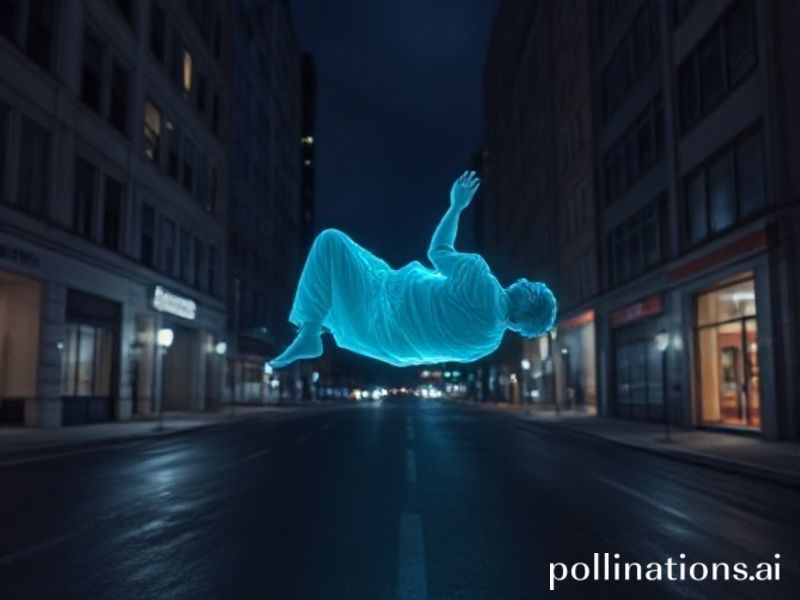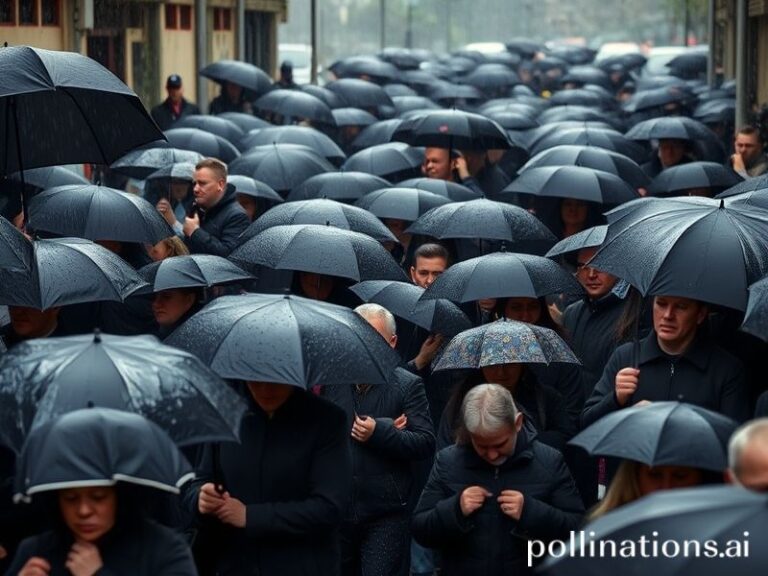Lucid Planet: How the World Clings to Clarity While Sleepwalking Through Chaos
Lucid: The Word the World Pretends to Understand While Hitting Snooze
By Our Correspondent, Somewhere Between Jet Lag and Existential Dread
Lucid, adj. — clear in expression or thought; rational; easily understood. A lovely, optimistic scrap of Latin that somehow survived the fall of Rome, two world wars, and an internet full of conspiracy theories about 5G mind-control pigeons. In theory, every government, corporation, and late-night Twitter philosopher craves lucidity. In practice, the planet has perfected the art of dozing through its own alarm clocks.
Consider the geopolitical lullaby. In Brussels, the European Commission releases a 400-page white paper titled “Toward a Lucid Digital Future,” which nobody reads because Brussels is simultaneously on fire over agricultural subsidies, and the PDF won’t load on the train’s Wi-Fi. Halfway across the world, the U.S. Congress holds a hearing on artificial intelligence regulation; senators ask the chatbot if it believes in God, then adjourn for a photo-op. Lucidity, it seems, is a dish best served lukewarm, garnished with plausible deniability.
Asia offers its own deluxe insomnia package. Beijing’s censors assure citizens that zero-COVID policies are “lucid science,” right up until the hazmat suits disappear overnight and everyone agrees to forget the months of welded-shut apartment doors. Tokyo, ever polite, introduces the concept of “lucid commuting,” encouraging salarymen to practice mindfulness while wedged into subways at 110-percent capacity. The mindfulness lasts exactly three stations, until someone’s backpack introduces itself to another commuter’s ribcage.
Down in Latin America, Argentina’s central bank issues a press release in lucid Spanish explaining why inflation is merely a suggestion. The peso nods politely, then plunges anyway. Meanwhile, in São Paulo, a fintech startup promises to bring “lucid banking” to the unbanked—right after it finishes laundering donations for a cryptocurrency named after a Shiba Inu wearing sunglasses. The Inu, to its credit, looks more lucid than most central bankers.
Africa, forever cast in the global imagination as either perpetual sunrise or perpetual crisis, offers lucidity in fragments. Nairobi’s Silicon Savannah exports mobile-money success stories to Davos, where executives tweet about “financial inclusion” from alpine hot tubs. Back home, the same executives’ Uber drivers navigate blackouts with headlights off to save fuel. The drivers, at least, are lucid about the odds.
Europe’s contribution to clarity arrives in the form of energy policy. Germany shuts down its last three nuclear plants to become “lucidly green,” then quietly reopens lignite mines so citizens can keep streaming Scandinavian noir at 22 °C. The coal smoke writes ironic haikus across the Rhine, but the subtitles are indecipherable.
Of course, no survey of planetary lucidity is complete without the meta-commentary: this article itself, composed on four hours of sleep somewhere above the Atlantic, is sponsored by airline coffee that tastes like remorse and a Wi-Fi plan that costs more than the GDP of Tuvalu. The screen brightness is set to “lucid,” which really just means “bright enough to remind you you’re still hurtling through the stratosphere in a metal tube piloted by someone who may or may not have had the same coffee.”
And yet, cynicism is too easy. Once in a while, something pierces the fog. A Ukrainian medic live-streaming triage instructions while artillery rattles the windows. A Chilean protester projecting a spreadsheet of disappeared citizens onto the side of the presidential palace. A Japanese grandmother teaching her grandkids to fold paper cranes while calmly explaining radiation half-lives. Tiny acts of ruthless clarity, flickering like exit signs in a burning cinema.
The broader significance? Humanity is not short on data; it’s short on the courage to stay awake while digesting it. Lucidity isn’t a state we achieve once and Instagram about. It’s the daily discipline of resisting the siren song of comfortable delusion—whether that delusion comes in the form of nationalist nostalgia, quarterly earnings, or the algorithmic certainty that you really do need another ergonomic pillow.
So here’s to the word “lucid,” a fragile, four-letter treaty against the dark. May we continue to violate it in creative ways, then scramble back toward its light—bleary-eyed, caffeine-stained, but at least dimly aware of the snooze button we keep slapping.
After all, the planet is still spinning. For now.







